A new hurricane season is here: What residents learned from Helene
AUGUSTA, Ga. (WRDW/WAGT) – Just over eight months after Helene raked the CSRA, another hurricane season began Sunday.
Experts warn that it could be above average.
While CSRA residents used to feel safe from a full-strength hurricane, Helene changed that, many of us say we’ll do things differently this year.
Forecasts predict ‘above average’ season
The National Oceanic and Atmospheric istration says there’s a 60% chance of an above-normal season ahead of us.
NOAA predicts 13 to 19 named storms, meaning maximum sustained winds of at least 39 mph. Of those, NOAA expects six to 10 to become hurricanes and three to five to become Category 3, 4 or 5, with maximum sustained winds of at least 111 mph.
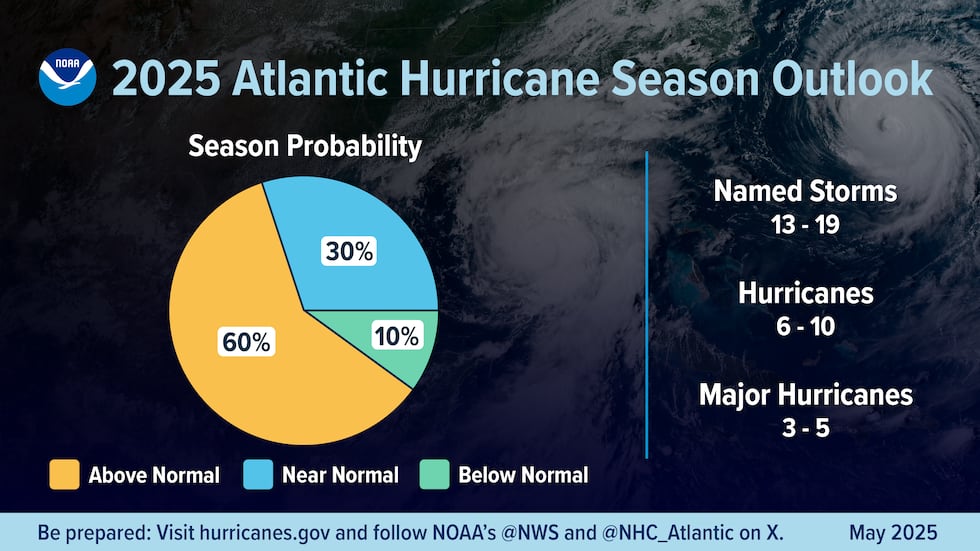
Colorado State University released the first take of its annual hurricane forecast in April, and likewise called for an above-average season, with 17 named storms
Why would it be above average? Warmer-than-average ocean temperatures, forecasts for weak wind shear, and the potential for higher activity from the West African Monsoon, which spawns hurricanes.
“This outlook is a call to action: be prepared,” NOAA National Weather Service Director Ken Graham said.
Lessons for the CSRA
The effects of Helene linger across the CSRA.
Many people are still repairing their homes, and toppled trees are still visible even though most of the debris has been hauled away.
But no one can replace the dozens of people who were killed by Helene across the CSRA.
The Red Cross has a list of recommendations to stay prepared – things like having a “go” kit in case you need to evacuate.
Local organizations providing for people still struggling from Helene
The United Way of Aiken and several other organizations teamed up to provide hunger relief for those still struggling to recover from Hurricane Helene.
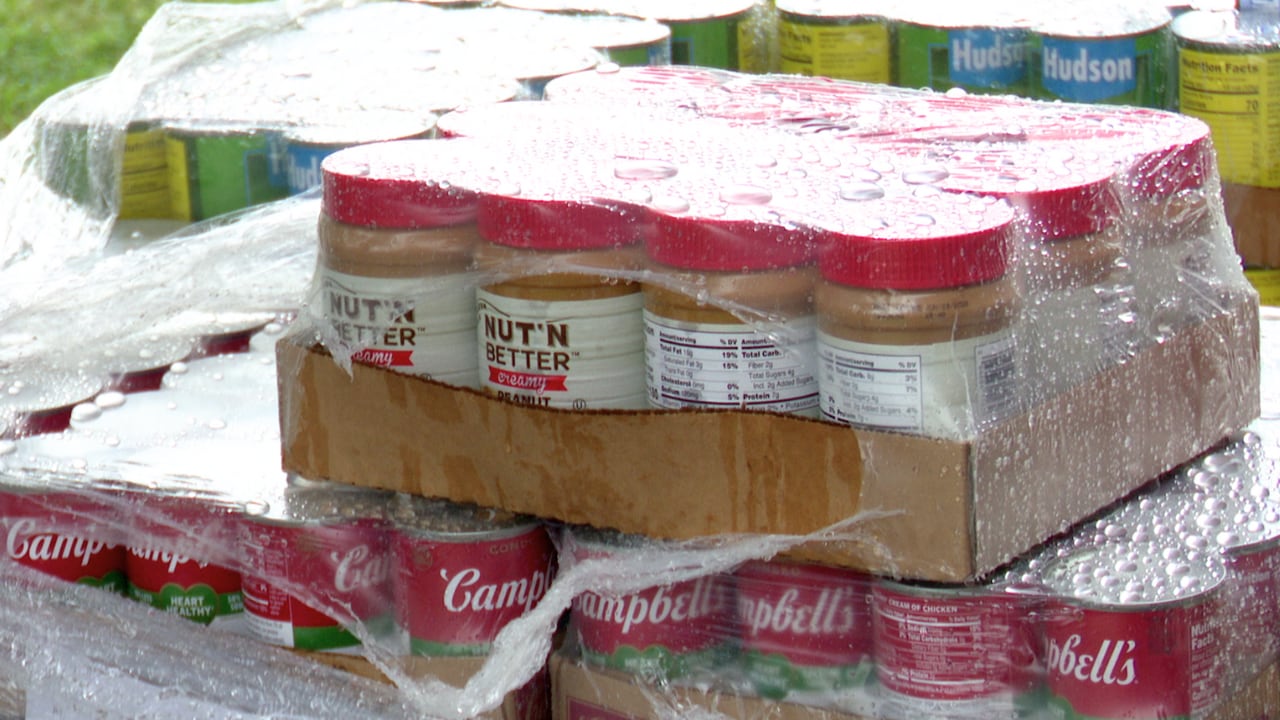
And while that’s a great starting point, local residents have learned some extra lessons.
You can start your preparations by ing the News 12 First Alert weather app for free at the Google Play Store or the Apple App Store to stay informed about warnings, forecasts and conditions.
And here’s some of what we learned beyond what the Red Cross says ...
After Helene, virtually everyone across the region was without electricity for days, but that lasted weeks for some.
And while many of us went out and bought generators after the storm, we also that just getting gasoline to run a generator was extremely hard.
Still, no one is suggesting it would be safe to stockpile large amounts of fuel, which is a danger in itself.
If you do decide to get a generator, the time to get one is now, not after a storm hits, when everyone else is trying to get one.
Don’t expect a generator to power your whole house or keep your air conditioner running.
Lingering debris from Helene poses special hazards on the lake
The Georgia Department of Natural Resources is all about safety on the water while having fun too, but wardens are warning that there’s still some Helene debris.
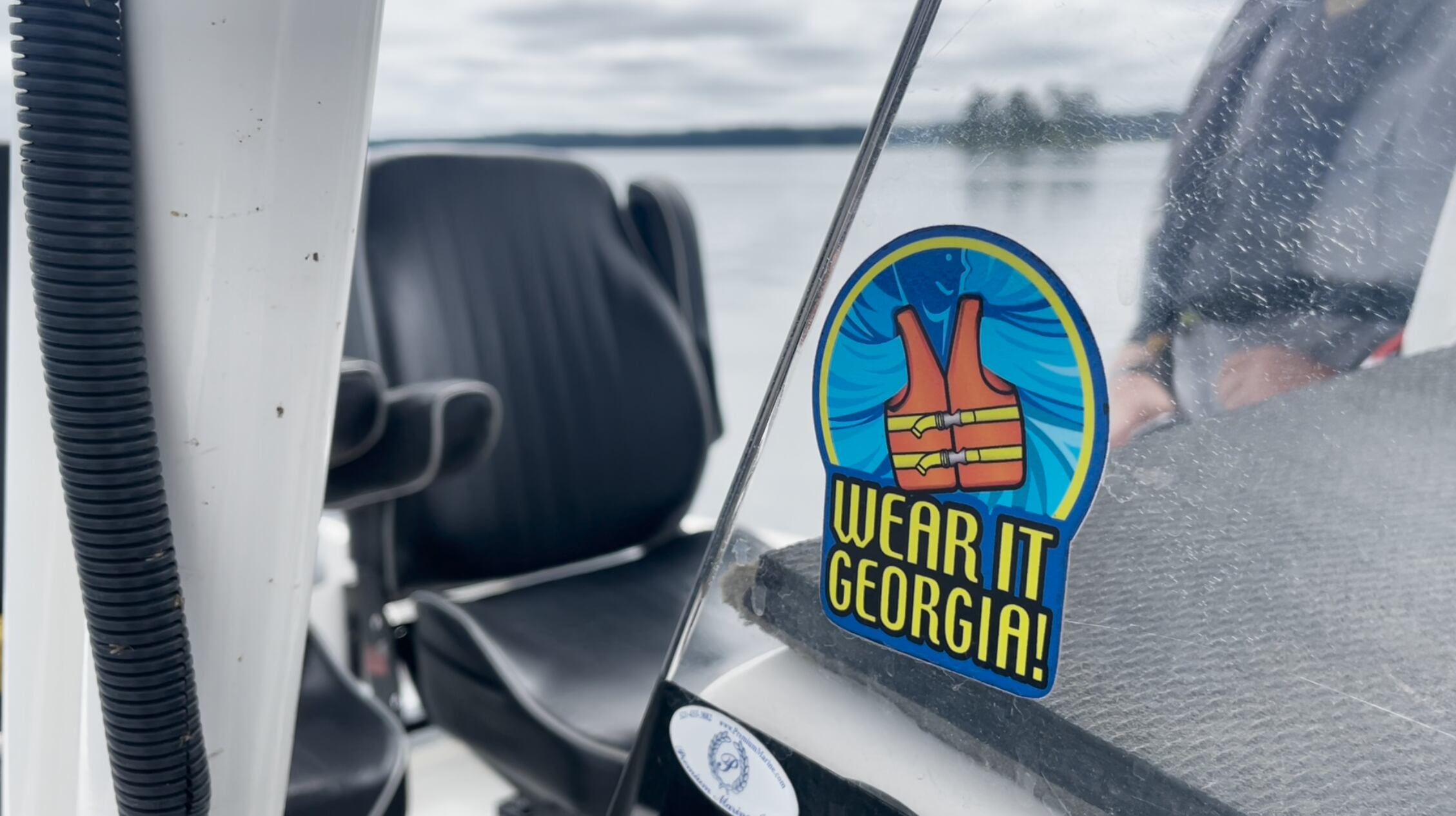
But you’ll be able to run your refrigerator for short periods to keep your food from spoiling, and you might use it to run a fan to keep your home bearable.
So a generator may help, but think about how you’ll sustainably be able to survive without power for days or weeks.
Plenty of batteries are a key need for flashlights and other gadgets.
Think about how you’ll recharge your cellphone, which Helene showed us will be your lifeline to news, information and the outside world. A hand-cranked or solar recharger might be a good investment right now so you’ll have it when you need it.
A LOOK BACK AT HELENE:
One obvious thing is water.
While many of us had bottled water, we didn’t expect water service to be shut off after Helene, like it was in Augusta.
Bottled water will only go so far, and you’ll need to save that for drinking.
But you’ll need water for sanitation, too. Think about filling up your bathtubs and every bucket you have with water ahead of a storm so you’ll have enough water for cleaning and to flush your toilets if needed – and to keep yourself clean, because you’ll probably be hot and sweaty.
Food is another obvious thing.
You’ll need plenty of canned and other shelf-stable foods to sustain you. And don’t forget you’ll need a hand-operated can opener.
Contractors see light at end of Helene-damaged tunnel
It’s been months since Hurricane Helene tore through our region leaving many residents with the task of managing the recovery.
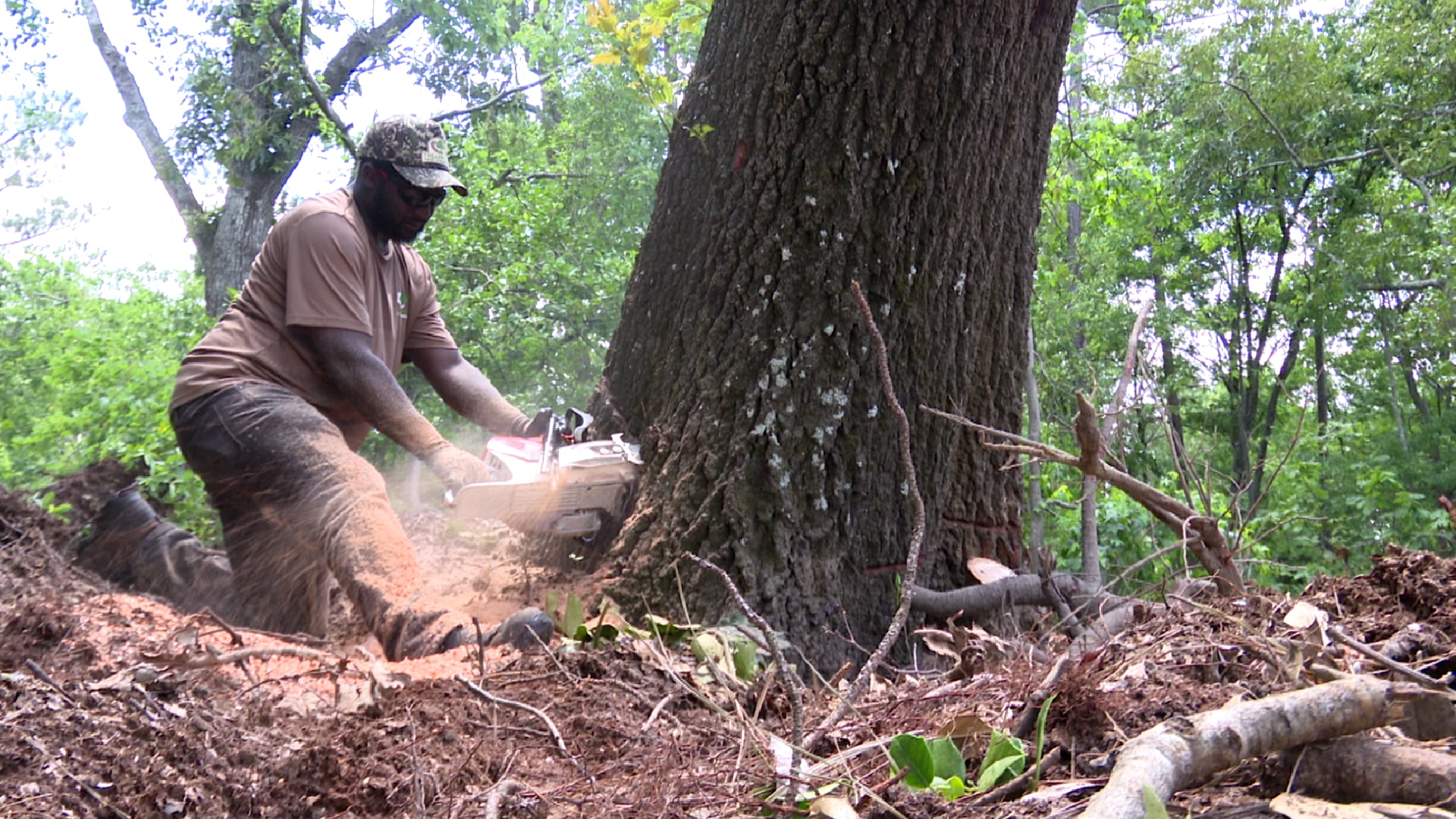
When the power goes out, you’ll need to start eating the food that will spoil first. The food in the refrigerator will last a while, and in the freezer, a little longer. But after about 24 hours, your refrigerator and freezer will start to warm up and the food will spoil or thaw.
Think about how you’ll cook it, so you can eat that food before you start turning to your stockpile.
If you’re planning on using your grill, make sure you have plenty of charcoal or propane. And you may want to have a cast-iron skillet or other utensils that can survive a grill.
Just that whatever you need, you should have it on your premises in case your neighborhood is cut off – and you’ll need it before a storm is even headed our way. Once the storm is in the forecast, everyone will be hitting the stores trying to get the same supplies.
One lesson we learned is that while aid centers may be set up, they won’t be easy to get to.
There were water and food distribution sites across our region after Helene, but they had to be reached by car. Yet many neighborhood roads were blocked and people lacked gas for their cars – and couldn’t even buy it because gas stations were either out of gas or lacked power.
There were even reports of pedestrians being turned away from distribution sites that were set up to offer drive-thru help.
Golden Harvest report shows hunger and food insecurity on the rise
A new report from Golden Harvest Food Bank shows hunger is on the rise. In Richmond County, one in five people is food insecure, including one in four children.
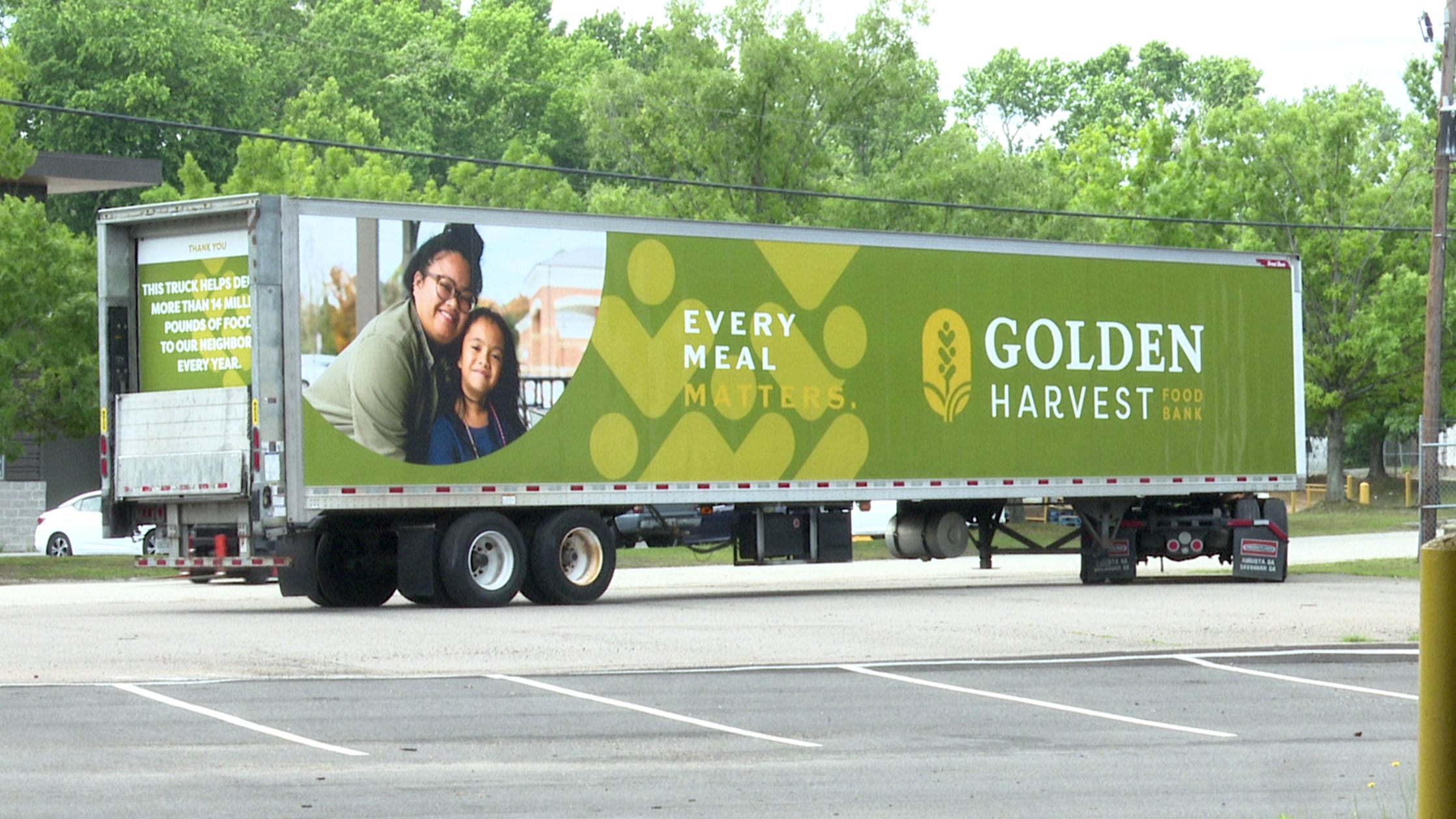
And officials were sending out mixed messages, saying people should stay off the roads; curfews were even imposed.
And don’t count on public transportation. Augusta Transit was one of the first services to shut down and the last to be up and running after Helene.
So you’ll need to be self-sufficient.
“You just kind of never know what’s going to happen,” Augusta resident Heather Graham said. “So at least having a few days, at least three or four days to get you through, just in case you don’t have water, just in case you don’t have electricity or anything.”
She’s doing things differently this year after four trees landed her our house and car during Helene.
“Having to kind of ask: Are you going to the store anytime soon? Can we tag along? Are you getting fuel anytime soon? That sort of stuff,” said Graham.
Check forecast, conditions on our streaming weather channel
Worried about the weather? Here’s a live feed from Augusta Weather 24/7, our around-the-clock digital weather channel.
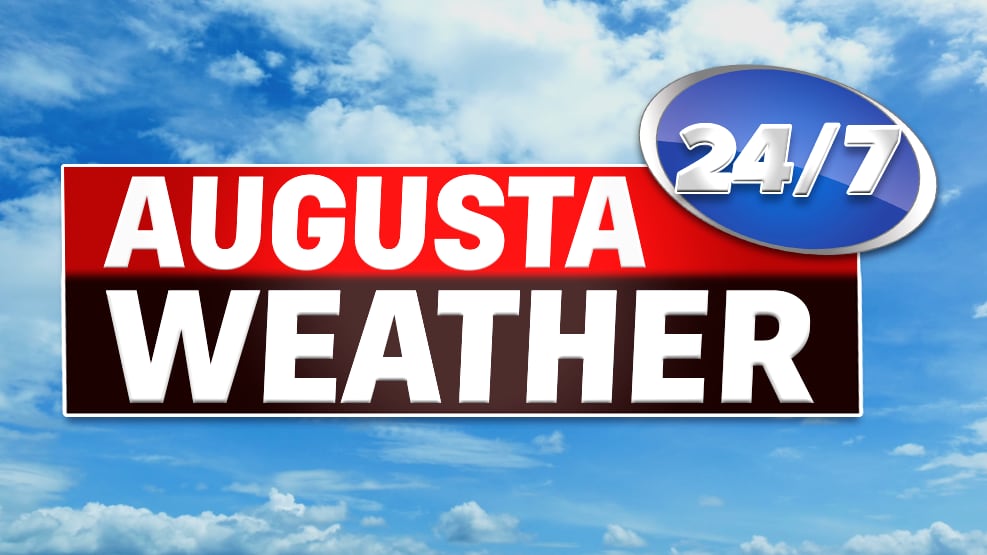
Graham is making sure she is stocked up on food, charcoal and water. She’s also taking time now to get to know her neighbors.
“You at least know your neighbors so that you can ask for a ride or anything like that,” she said. “That’s better than nothing and then being stuck where nobody can help you.”
With that said, here’s the advice from the Red Cross:
Well ahead of any storm – like right now – look at your insurance coverage, know what it will cover and what it won’t, and how to file a claim if the time comes.
If another storm hits, the Federal Emergency Management Agency could be a resource.
While the agency isn’t as visible here as it once was after Helene, the aid is still flowing.
Here’s a look at some of the most recent numbers:
- FEMA has approved more than 402,710 applications for assistance and has approved more than $369.5 million in assistance to survivors for Hurricane Helene and Tropical Storm Debby.
- The assistance includes more than $11.7 million in rental aid to more than 4,839 Georgia families. Additionally, to date, FEMA secured long-term housing for nearly 288 families.
- FEMA has approved more than $556.1 million in public assistance to help communities remove debris and pay for management costs incurred by the state due to Hurricane Helene and Tropical Storm Debby.
- More than 40.1 million cubic yards of debris have been removed.
This year’s hurricane names
The World Meteorologist Organization maintains a rotating set of lists for hurricane names. Each list of names repeats every six years, which means that the 2025 list was last used in 2019.
The list is the same as then with one exception: the name Dorien was retired because of the significant damage Hurricane Dorien caused. This year’s D-name will be Dexter.
Here’s a full list of this year’s hurricane names:

2024 hurricane season set new records
There were a total of 18 named storms last year, 11 of which became hurricanes and the season saw five major hurricanes.
Hurricane Beryl, the second named storm and first to become a major hurricane, was the earliest Atlantic basin Category 5 hurricane on record.
Hurricane Helene, which made landfall as a Category 4 storm on Sept. 26 in the Florida Gulf Coast, was the deadliest hurricane to affect the continental U.S. since Katrina hit in 2005. It was also the strongest hurricane on record to make landfall in the Big Bend of Florida.
Hurricane Milton made landfall as a Category 3 hurricane near Siesta Key, Florida, on Oct. 9, and data showed its rate of rapid intensification was among the highest ever recorded, with a 90-mph wind speed increase in 24 hours. When it made landfall, Milton spawned an outbreak of 46 tornadoes.
No named storms formed between Aug. 13 and Sept. 8, the first time that long of a lull happened since 1968, CSU said.
Seven hurricanes formed in the Atlantic after Sept. 25, the most on record from that date forward.
The 11 named storms that formed since Sept. 24 tied with 2005 for the record of most-named storms that formed from that date forward.
Hurricanes Kirk, Leslie and Milton were all active hurricanes at the same time in October, marking the first time on record that three hurricanes were simultaneously spinning in the Atlantic from October forward.
And five hurricanes made landfall in the continental U.S., falling short by one of the record total measured in 1886, 1985 and 2020.
Copyright 2025 WRDW/WAGT. All rights reserved.














